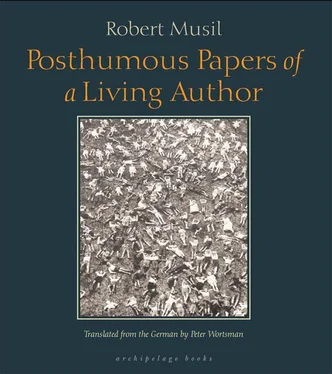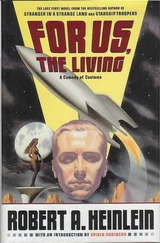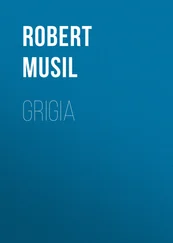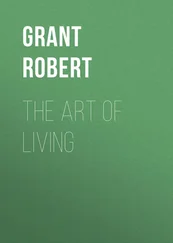And what then?
Will we instead of Oedipus be given Orestes? Or will Psychoanalysis have to give up its beneficent effect?
*Members of the elite Italian assault troops.
The Giant Agoag
When the hero of this little story — and truly, he was one! — rolled up his sleeves, two arms as thin as the sound of a toy clock came into view. And the women praised his intelligence in a friendly manner, while they went out with others for whom they didn’t always have such kind words. Just one comely beauty once, to everyone’s surprise, deigned to grant him a greater intimacy; she loved to make big eyes at him and shrug her shoulders. And following the vacillation in the selection of endearments that usually comes at the start of every love affair, she called him “my little squirrel!”
Henceforth he read only the sports section of the newspaper, in the sports section dwelt most avidly on the boxing news, and of the boxing news preferred to read about the heavyweights.
His life was not happy, but he never stopped searching for a means to build up his strength. And since he didn’t have enough money to join a muscle-building club, and since sports has in any case, according to modern view, long since ceased to be the lowly talent of the body, and has become instead a moral triumph, a victory of the spirit, he pursued the search for strength on his own. There was no free afternoon which he did not use to go walking on his toes. Whenever he found himself alone and unobserved in a room, he reached with his right hand behind his shoulder to grab the things that lay on his left, and vice versa. Getting dressed and undressed became a challenge to the spirit which he carried out in the most strenuous way possible. And since every muscle in the human body has a counter muscle, such that one stretches while the other flexes, or flexes while the other stretches, he succeeded in infusing every movement with the most unspeakable difficulties. One might well maintain that on good days he consisted of two people, complete strangers who were forever fighting each other. And when, after such an optimally utilized day, he got ready to go to sleep, he once again strained all at once, all the muscles he could reach; and then he lay there, in his own muscles, like an alien piece of meat in the claws of a bird of prey, until tiredness came over him, his grip loosened and he let himself slip vertically into sleep. By this lifestyle it was inevitable that one day he would become invincibly strong. But before this could happen, he got into a fight on the street and was beaten up by a sizable crowd.
Following this disgraceful melee, in which his soul suffered injury, he was never the same as before, and it was questionable for quite some time thereafter if he would be able to endure a life stripped of all hope. Then he was saved by a giant omnibus. He chanced to witness a massive omnibus run over a rather athletically built young man, and this accident, as tragic as it turned out for the victim, resulted in a new point of departure in his life. The athlete was, so to speak, peeled-off existence like a wood shaving or the skin of an apple; whereas the omnibus, hardly stirred by the contact, rolled to the side, stopped and gaped back out of its many eyes. It was a sad sight, but our man quickly saw his chance and climbed aboard the victor.
So it was and so from that hour it would remain: For fifteen cents he could, whenever he wished, crawl into the body of a giant from whose path every muscleman had to jump aside. The giant’s name was Agoag. That probably stood for Athletes-Get-on-Omnibus-Associated Group; and in any case, those who still want to experience fairy tales nowadays can’t be too overly cautious. So our hero climbed on top of the bus and was so big that he lost any feeling for the dwarves that swarmed on the street below. He could no longer even imagine what they had to talk about with each other. He loved to see them leap aside in terror. And when they crossed the line of traffic, he barked at them like a watchdog snapping at sparrows. Cognizant of his destructive power, he looked down disdainfully on the roofs of the stylish private cars whose elegance had always in the past intimidated him, and he felt like a man with a knife eyeing the poor dumb chickens in a coop. This didn’t require that much imagination, just the application of a little logic. For if it is true what they say, that clothes make the man, then why not an omnibus too? You put its immense strength on about you, like someone else might put on a suit of armor or hang a rifle over his shoulder; and if knightly valor can be associated with armor, then why not just as well with an omnibus? And even for the mighty conquerors of history: Was it their weak body softened by the comforts of power that instilled terror in the enemy, or the apparatus of power with which they were able to surround themselves which made them invincible? And what is it, our man thought (enthroned in his new way of thinking), about the noble coterie who surround the kings of boxing, running and swimming like courtiers, from manager to trainer to the man who carries away the bucket of bloody water or lays the bathrobe on the champ’s shoulders; do these contemporary descendents of the old Lord High Steward and Cup-Bearer derive their dignity from their own power, or from the reflected rays of an alien power that surrounds them? (As one can see, he drew great insight from the accident.)
From now on, he no longer used every free moment for sports, but rather for bus riding. He dreamed of acquiring a far-reaching long-distance bus pass. And if he did in fact fulfill his dream and hasn’t since died, been crushed or run over, didn’t fall from a precipice, or land in a madhouse, then he is still riding around with it today. Once, though, he went too far and took a girlfriend along for the ride, expecting that she would be able to appreciate intellectual masculine beauty. There with them in the massive belly of the bus was a minuscule parasite with a mustache who smiled a few times suggestively at his girlfriend, and she, almost imperceptibly, smiled back; and when this mustached mite got up to leave, he even accidentally brushed past her and seemed to whisper something in her ear while publicly offering chivalrous apologies. Our hero boiled with rage; he would have liked to jump on his rival, but as small as the latter would have appeared beside the giant Agoag, just so big and brawny did he appear inside. Thus our hero remained seated and later showered his girlfriend with reproaches. But even though he had initiated her in his way of thinking, she did not reply — I don’t care a hoot about musclemen, it’s big husky omnibuses I love! — but rather simply lied to him.
Ever since this spiritual betrayal, to be blamed on the inferior intellectual daring of women, our hero took fewer bus rides, and when he did ride a bus, it was without any female companion. He divined a glimmering of that fateful truth about man summed up by the adage: The strong are strongest alone!
A Man Without Character
You really have to seek out character with a lantern nowadays; and you would probably look ridiculous to boot, walking around in broad daylight with a burning lamp. I want to tell the story of a man who always had difficulties with his character, who, to put it plainly, never even had a character; yet I am concerned that I may simply not have recognized his significance early enough, or that he may be something like a pioneer or forerunner of a new trend.
We were neighbors as kids. Whenever he carried off one of those little feats of mischief that are so splendid you’d rather not tell about them, his mother groaned, for the beating that she gave him tired her out. “Son,” she wailed, “you haven’t a speck of character; what in the world will become of you!?” In serious cases, however, his father was called in, and then the beatings had a certain ceremonious aspect and a solemn dignity, something like a school assembly. Before the festivities, my friend had with his own hands to go get the Lord High Counselor a cane switch whose primary use was to beat out the wash and was kept by the cook; and when it was all over with, the son had to kiss his father’s hand and, thanking him for the reprimand, had to beg forgiveness for the trouble he had caused his dear parents. My friend did it the other way around. He pleaded and howled for forgiveness before it began, and continued pleading from one blow to the next; but when it was all over with, he refused to utter another word, was all red in the face, swallowed tears and saliva, and tried by means of assiduous rubbing to wipe away the traces of his pain. “I don’t know,” — his father liked to say — “what will become of that boy; the rascal has absolutely no character!”
Читать дальше











